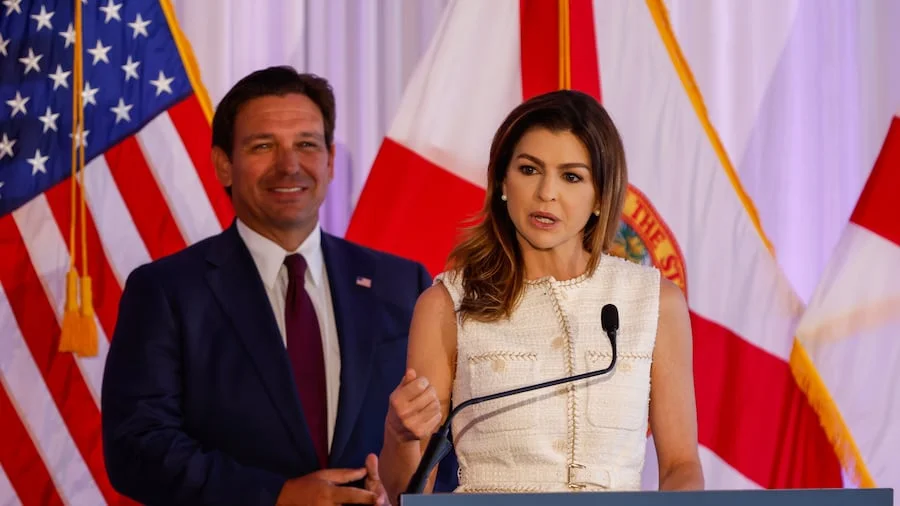
Unraveling the Controversy: Is Hope Florida Truly a Path to Empowerment?
In the heart of Florida's political landscape, the Hope Florida initiative has emerged as a beacon of ambition, aiming to uplift citizens from government dependency. Yet, whispers of scandal and ongoing investigations have cast a shadow over its successes, raising questions about transparency and potential misuse of funds. As details unfold, this program—championed by Governor Ron DeSantis and First Lady Casey DeSantis—highlights the delicate balance between innovative social policy and political accountability.
Hope Florida, launched as a non-bureaucratic approach to welfare reform, connects Floridians in need with community resources like churches, nonprofits, and businesses. According to recent updates from the DeSantis administration, the program has assisted over 30,000 individuals in reducing or eliminating reliance on public aid, secured jobs for more than 3,000 participants, and saved taxpayers over $100 million. During a recent press conference in Tampa, Governor DeSantis emphasized its transformative potential: "It's an approach to how government agencies should serve the people they represent, not just process benefits but link them to real opportunities." First Lady Casey DeSantis echoed this sentiment, describing it as "a rewiring of how government operates," focusing on human connections over mere statistics. She highlighted heartwarming stories, such as faith-based groups supporting veterans, underscoring the program's emphasis on dignity and self-sufficiency.

However, the initiative's bright narrative is complicated by serious allegations. Leon County prosecutors have confirmed an open criminal investigation into the Hope Florida Foundation, stemming from claims that $10 million from a Medicaid settlement was improperly diverted. State Rep. Alex Andrade, leading a House probe, accused officials of potential money laundering and wire fraud, pointing to funds that allegedly flowed from the foundation to political committees tied to DeSantis' administration. When questioned about the investigation, DeSantis dismissed it as "pure politics," defending the program's integrity: "I believe in this program deeply and stand by it 100%." This response has fueled debates about whether such initiatives are genuine welfare reforms or tools for political gain.
Comparing the program's achievements with the scrutiny it faces reveals a broader commentary on governance in Florida. On one hand, Hope Florida's partnerships with organizations like CareerSource Florida have expanded job opportunities, with over 500 employers now involved and 87% of participants seeing wage increases within six months. On the other, critics argue that the alleged fund diversions undermine public trust, especially since Medicaid settlements are meant for healthcare needs. This contrast underscores the risks of blending charity with politics, potentially eroding the very communities the program aims to help.
In summary, Hope Florida represents a bold experiment in social innovation, but the ongoing investigation serves as a reminder of the need for ethical oversight. As Florida navigates these challenges, one wonders: Can programs like this truly empower without entangling in controversy? We invite readers to share their thoughts—do you see Hope Florida as a model for the nation or a cautionary tale?